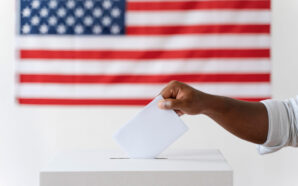If something characterizes the social experiment called The United States of America, it is the notion that education is the great antidote against inequity and inequality.
It doesn’t matter if we come from humble or remote origins, or the color of our skin, education is our best opportunity for social and economic mobility.
Education is thus the standard of a meritocratic society, and not one based on privileges: the idea that with skills and talent you have a real possibility of advancement.
Of course it is not a perfect system. Children from the poorest families or regions of the country will have more difficulties than others because there are factors such as nutrition, the quality of their education, their medical access, etc. It is a universal phenomenon.
But beyond these differences, a new survey raises serious concerns about how the new generations seem to be losing appreciation for education in general and university education in particular.
The Gallup poll shows that Americans’ confidence in higher education has fallen to 36%, well below two previous readings in 2015, when it was 57%, and 2018, when it was 48%. If the poll is correct, that’s a drop of 21 percentage points in just eight years. It is a trend that should concern us all.
Not surprisingly, the steepest drop in the value of higher education is for Americans without a college degree, down 25 percentage points in just 8 years. But it is true that the second sharpest decline took place among people with postgraduate studies (masters or doctorates) by 17 percentage points.
The revealing survey also shows that more women than men are losing confidence in higher education and even more young people between the ages of 18 and 34 have slightly less confidence than those between the ages of 35 and 54.
The ranks of those who have very little confidence in university education are also growing, which has gone from 9% in 2015 to 15% in 2018 and is currently at a new record of 22%.
If we consider that higher education is particularly important for people from lower-income families, since it represents their best opportunity to move up the economic ladder, the number suggests that confidence in education as the great social equalizer is being lost.
The situation is even worse for the new generations of minorities of color, when we consider that the decision of the supreme court to prohibit affirmative action in college admissions could have the effect of excluding a significant number of Latino or African American students from higher education.
It’s a reality that hit me when I recently attended a pre-K graduation. Each of them wrote what they wanted to be as adults. Many wanted to be doctors, but many more yearned to be chefs, firefighters, and a new profession: YouTube Personality.
I’m sure that for many high school students, the rising cost of higher education weighs on their decision to pursue their studies. But it should hardly be a consideration for a 5-year-old. It is up to all of us to avoid losing appreciation for education. It is our only guarantee of progress, mobility and dignity.





